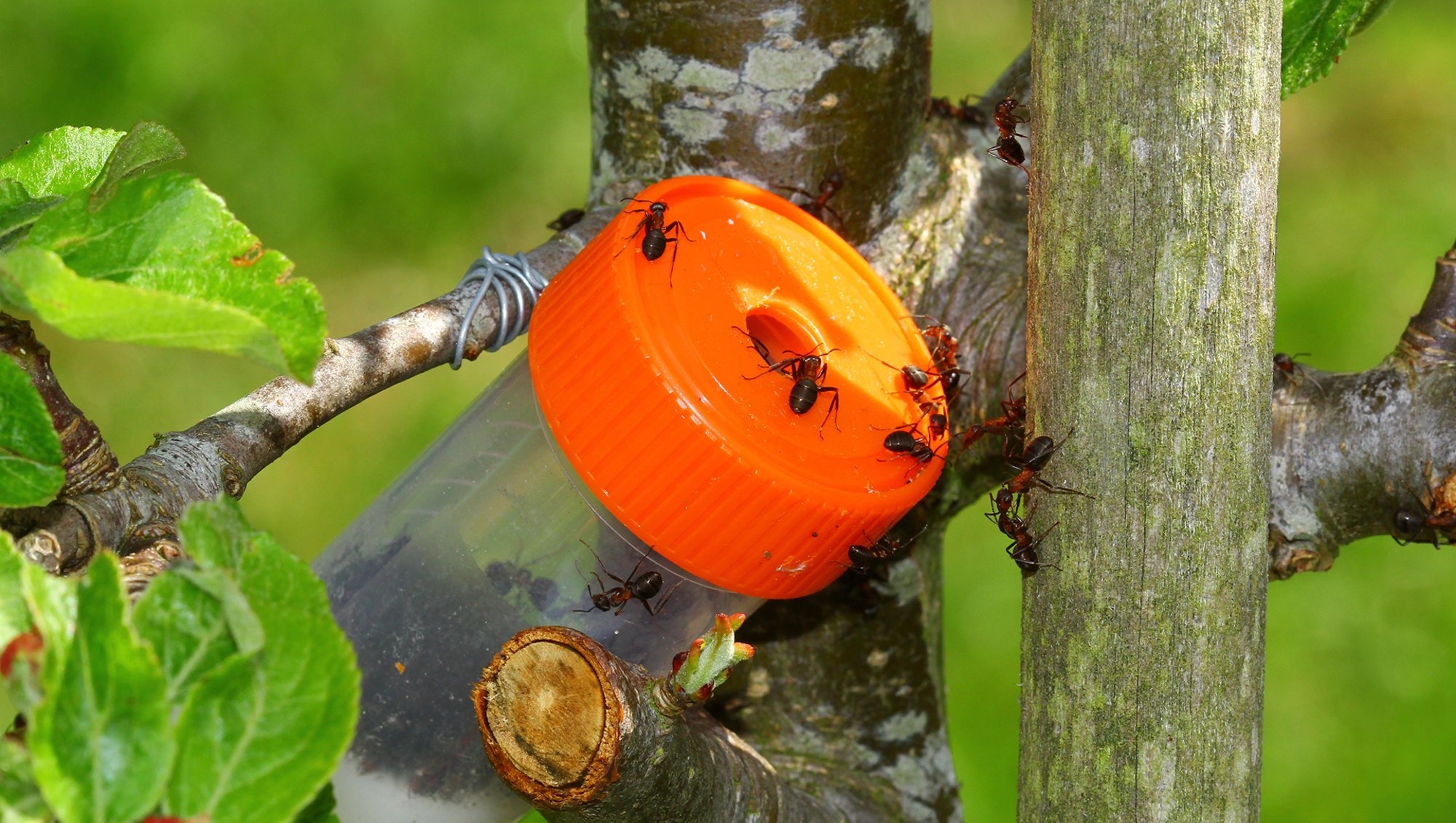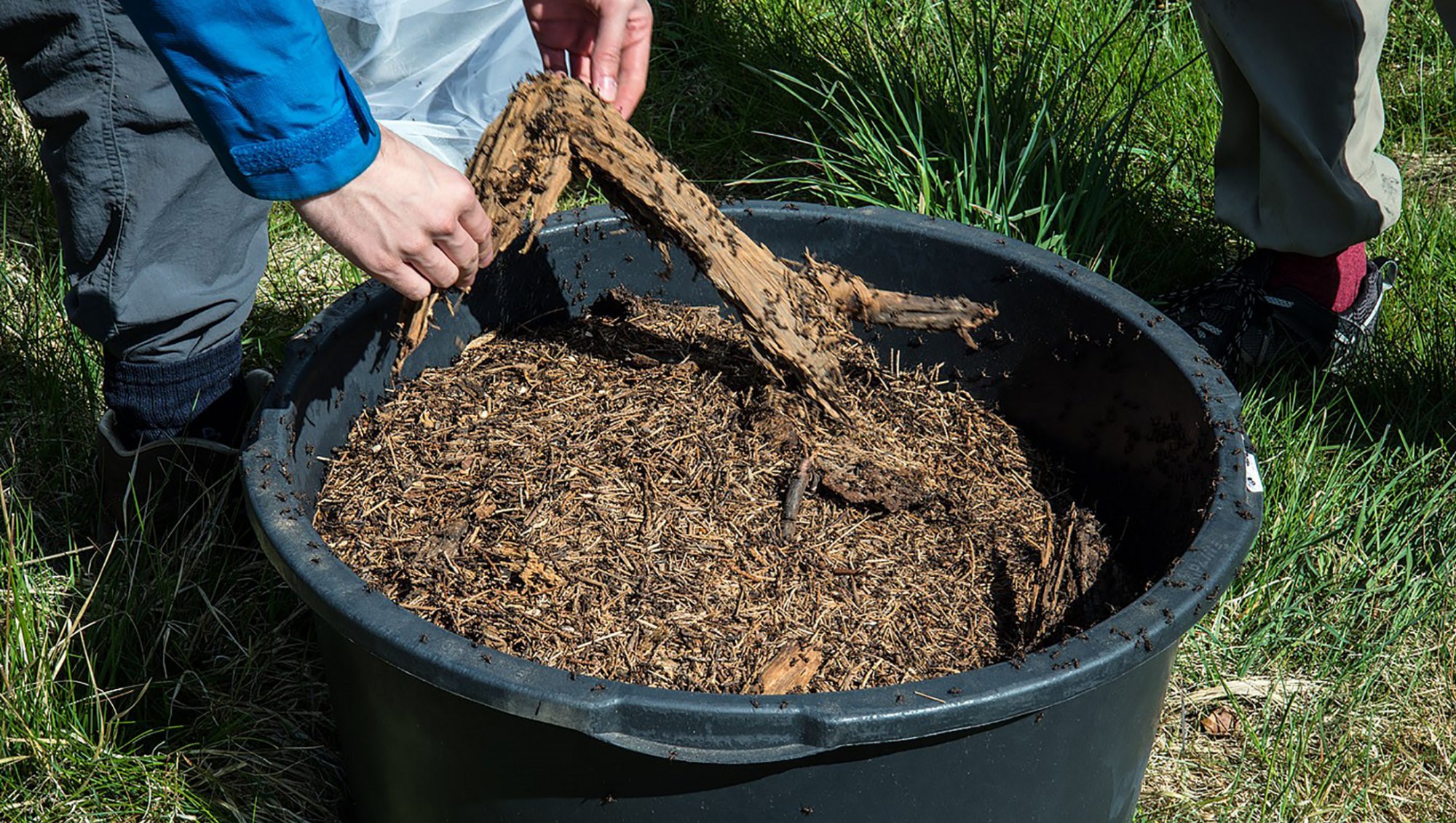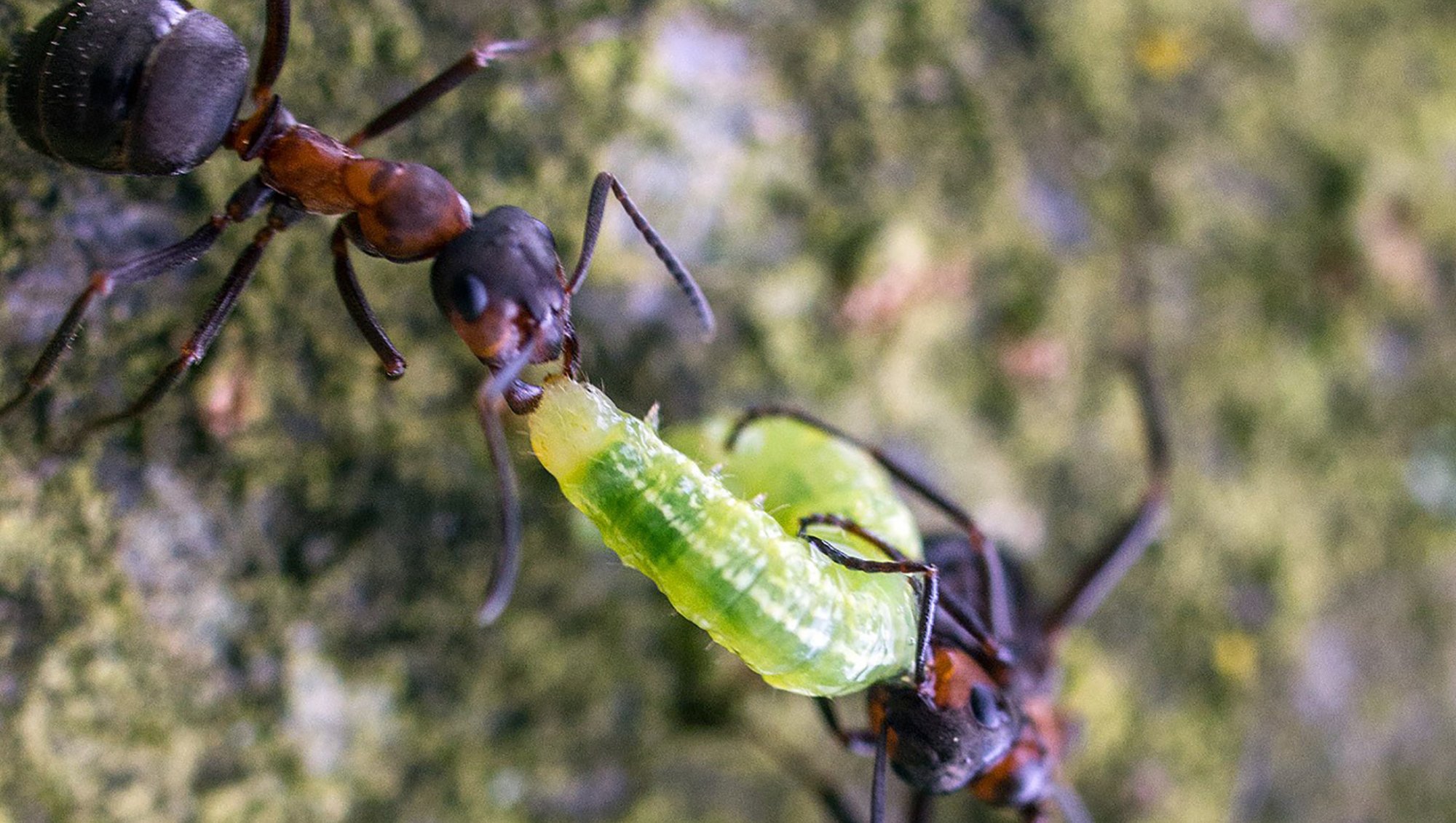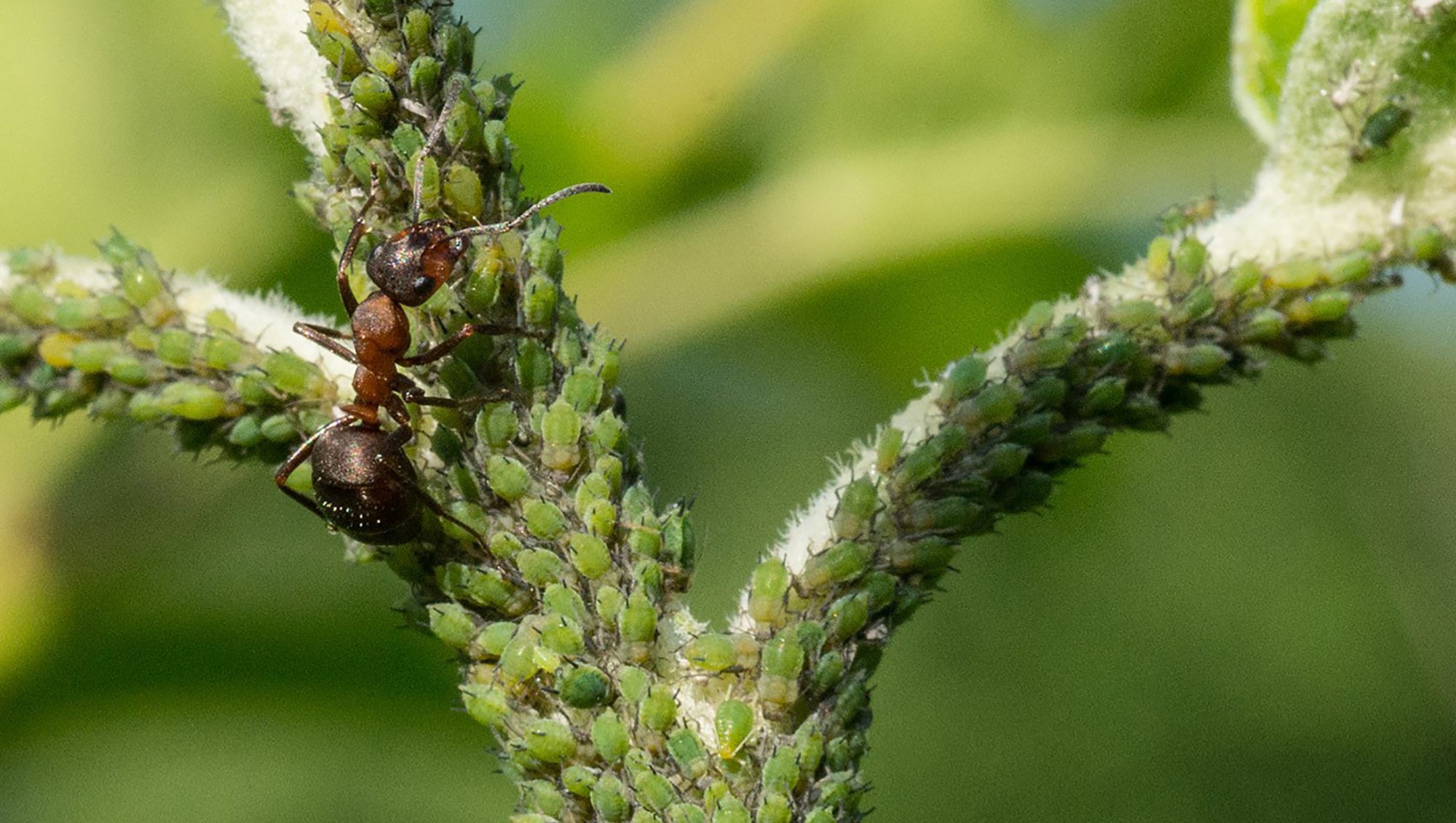Open Field Biocontrol
Open Field Biocontrol
- Ants can secure a sustainable organic fruit production
The Danish production of organic fruits and berries is not allowed to use chemical pesticides. Therefore, the sector needs effective means to fight pests and plant diseases. If a biological alternative to the chemical substances can be found, the organic farmers can stabilize and increase their yields, hereby improve their economic conditions. The result could be a higher production of organic fruits and berries without traces of pesticides, which is in short supply for the consumers. At the same time, it can make the organic sector more attractive, causing farmers to convert from conventional to organic farming. This would mean fewer pesticides in the Danish nature, higher biodiversity, and a lesser impact on the climate.
Purpose of the project
Wood ants can work as a biological alternative to pesticides because they can protect fruits and berries against pests and plant diseases. This is due to the ants eating other insects and disease tissues as well as releasing antibiotic substances, that inhibit plant diseases.
Even so, the ants also have a negative effect because they farm aphids, which can be harmful for the production. The ants farm aphids in order to harvest and eat the sugar-rich honeydew secreted by the aphids. However, one can prevent the aphid-farming by developing and offering sugar mixtures that are more attractive than the aphids’ honeydew. If this succeeds the plantation-farmers can be content with the positive effects of the ants and thereby gain access to a biological control agent that could make the sector economically attractive. This project is working with apple trees, but the method is expected to work in most types of perennial plant systems.
| The project step by step |
|---|
| Establishment of an experimental plantation with apple trees, wood ants, and aphids |
| Development of sugar solution mixtures that are attractive to wood ants |
| Tests to elucidate whether feeding with artificial sugar mixtures can stop the aphid-farming |
| Tests to elucidate whether the ants protect the apples against pests and diseases |
Project period: 2020-2022
Results and recommendations
Overall Project Goals Achieved
Danish organic fruit farming has few and ineffective methods when it comes to combating insects and plant diseases, for example. This leads to low and unstable yields compared to conventional farming, which uses chemical pesticides. The result is a modest organic production that cannot keep up with the demand for Danish organic fruit.
The goal of the Open Field Biocontrol project was therefore to develop a new and sustainable method to combat insects and diseases in Danish fruit farming without the use of chemicals. The method tested in the project involved wood ants, which eat insects and disease-causing organisms and secrete antibiotics that inhibit plant diseases.
Wood ants naturally collect and keep aphids on plants because the honeydew produced by the aphids serves as food for the ants. Therefore, the use of this method requires preventing the wood ants from keeping aphids. Another goal of the project was to develop a sugar mixture that would attract the ants more than the honeydew from the aphids.
The overall goals of the project were achieved – see below.
Wood Ants Reduced Apple Scab
Wood ants secrete antibiotics, and the project confirmed results from a previous project, MothStop, which showed that the ants' inhibitory effect on scab symptoms on both leaves and apples was convincing and led to an increase in the number of scab-free apples. On trees with ants, the proportion of scab-infected shoots was reduced by about one-third, and the number of scab spots on apples was significantly reduced by about 60 percent compared to trees without ants.
The increase in scab-free apples has the potential for a significant economic impact, as scab-free apples can be sold as eating apples instead of being used for juice.
The project also discovered a new species of the bacterium Pseudomonas, which inhibits all five plant-attacking fungal diseases it was tested against. A review of the scientific literature in the field identified 22 chemical compounds and 30 species of bacteria from various ants that inhibit 30 different plant diseases.
The Number of Aphids Was Reduced
By feeding the wood ants with sugar, the number of aphids kept by the ants was drastically reduced to the extent that they were completely eliminated by the end of the project period.
The project also explored which compositions of sugar solutions could most effectively attract the ants. Laboratory experiments showed that the ants preferred sugar mixed with an alkaloid (morphine hydrochloride). It was not possible to test this in the field within the timeframe of the project, but it turned out to be unnecessary, as simple sugar mixtures of water and sucrose had the desired effect without added attractants.
The significance of the results – Implementation in practice
The project demonstrated that the method of using wood ants for fruit cultivation protection -against both pest insects and plant diseases - is ready for implementation, as the negative side effect of ants keeping aphids can be eliminated.
The newly discovered disease-inhibiting Pseudomonas bacterium can potentially be mass-produced and used as a biopesticide against plant diseases, thus becoming a new tool for organic farmers. Developing methods for ant breeding for commercial sale is a natural next step.
Outstanding tasks before full implementation include:
- Developing methods for the efficient breeding of wood ants and the development of automated sugar-feeding systems that can make sugar feeding cost-effective.
- Research into the use of the new Pseudomonas bacterium.
Project leader
Joachim Offenberg, Department of Bioscience,
Aarhus University.
E-mail: joaf@bios.au.dk
Phone: + 45 25 58 06 80



